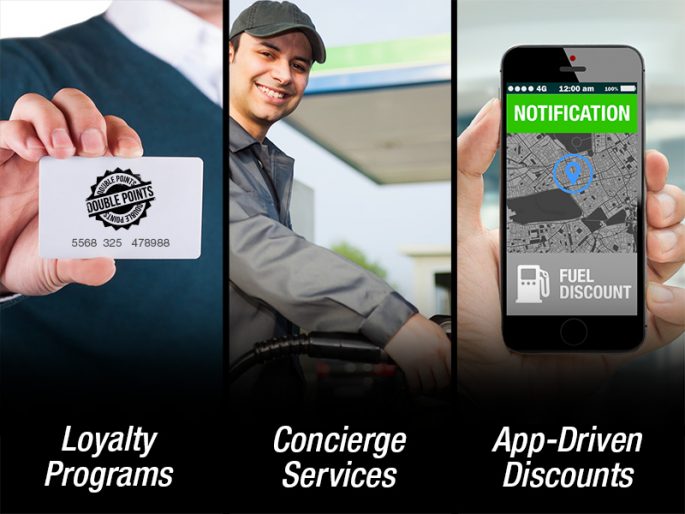Whether you call it a paradigm shift or disruption, there are new business models emerging that could alter the fundamental business concepts within our industry. Fuel marketers need to acknowledge this shift and look for ways to adopt the new practices to remain competitive. Consider this:
Concierge Customers: Volvo recently introduced a program that allows customers to order services such as fueling and car washes. Made possible through a digital key, an authorized service provider completes the requested tasks. The concept of concierge services suggests that fuel retailers who partner with automakers to provide these services will be able to leverage the car manufacturer’s customer base.
Loyalty & Payment Partners: Ford and Honda are shaking things up through in-vehicle loyalty/payment programs, which are proven to draw repeat business. Retailers who support these in-vehicle programs stand to reap the benefits.
The Upside to Upside: Fuel marketers on the East Coast have partnered with Upside, a company that negotiates price discounts for fuel sold at individual gas stations and passes the savings on to customers. Upside only offers their fuel discount to the first station in the area that reaches out to Upside. Although the margins of the fuel sold to Upside customers may take a hit, the app represents a way to draw new customers that could bolster C-store sales.
The EMV Connection
Every retailer’s automated dispenser payment terminal will need to be EMV compatible in 2020 to avoid financial liabilities. Retailers who plan to also incorporate software and hardware upgrades that support future growth will maximize their capital investments. For more information, watch Fuel Marketer News for Source’s next “Fueled for Thought” column.




